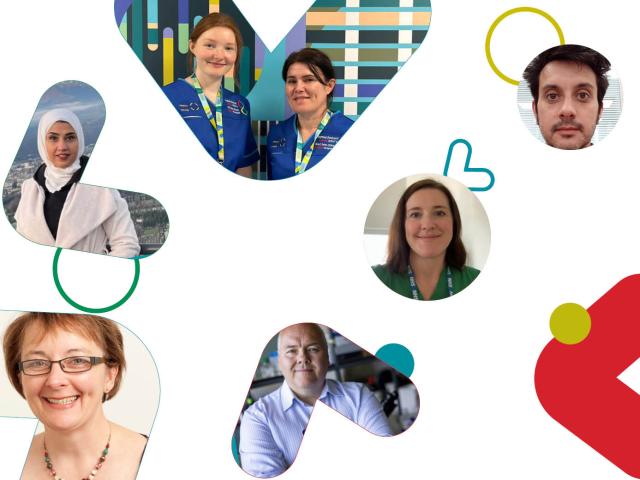
International Clinical Trials Day 2023
20 May
To celebrate International Clinical Trials Day 2023, we are highlighting some examples of research which is making a difference in Wales and how members of the public are essential to research.
It’s not all about blokes in lab coats
Mental Health Nurses, Emily Barnacle and Rhian Gray from Aneurin Bevan University Health Board want to raise awareness of alternative approaches to mental health clinical trial research, through home visits.
Emily and Rhian support participants with complex mental health conditions who are receiving treatment or interventions as part of a clinical trial. Their research covers a wide range of mental health conditions from dementia and Alzheimer's disease to psychosis, anxiety and depression.
Emily said: “The people involved in our studies often experience chaotic lifestyles; it is unlikely they would be able to participate in a trial if it meant them having to come to a specific clinic or research department. So, we take the research to them.”
Home visits have enabled Emily and Rhian to form good relationships with their participants and establish trust, which has led to overall high attendance outcomes throughout the trials.
Research scientists tackling one of the UK’s most common forms of leukaemia
Researchers in Wales are looking to develop a “gold-standard” precision treatment for Acute Myeloid Leukaemia (AML), a form of blood cancer.
There are over 100 different types of AML, which makes it difficult to treat. But research led by Professor Alex Tonks, of Cardiff University’s Division of Cancer and Genetics, is focusing on how AML develops, to create targeted treatments to tackle it. Similar treatments for another type of blood cancer have seen survival rates soar.
Professor Tonks said: “The survival rate for patients with Chronic Myelocytic Leukaemia went from approximately 10% after five years to above 90%. To be able to increase the survival rate to that level and above; that’s the gold standard we want to achieve for all the other blood cancers.”
From early dementia diagnosis to hug dolls
Dr Simon Read, a Health and Care Research Wales Social Care Research Fellow, is conducting a study on effective preventative social care practices for elderly individuals who are receiving care or support, including those with dementia.
The research project aims to identify various organisations in Wales that provide preventive care. The goal is to offer support at the earliest stage of a possible diagnosis, even before the condition is formally diagnosed.
Increased community interaction can improve health and wellbeing
The Wales School for Social Prescribing Research (WSSPR) is leading the way for social prescribing research in Wales and internationally. Researchers hope to understand more about how our health and wellbeing can improve through increased social interaction with our communities, alongside or instead of prescribing medication as treatment.
Social prescribing aims to help connect people with local activities, groups and services such as yoga classes and community gardening to evaluate the impact this has to their health and wellbeing.
Using physical exercise as a coping strategy for refugees and asylum seeker
At least one third of refugees and asylum seekers live with mental and physical issues caused by traumatic experiences in their home country and during their journey to safety. Research has shown these mental and physical symptoms can overlap, making it difficult to treat the whole person as fully integrated mental and physical healthcare provision is currently unavailable in Wales.
Zaina Aljumma wanted to help future refugees so she took part in a research study looking at how exercise could help those seeking sanctuary manage the mental and physical challenges arising from trauma.
Immersive virtual reality (VR) therapy to help rehabilitation post-intensive care
Dr Ceri Lynch, a Consultant Anaesthetist at the Royal Glamorgan Hospital, is exploring how immersive VR could aid patients in their rehabilitation and recovery, with figures showing that up to 80 per cent of those who are admitted to intensive care experience some degree of post-intensive care syndrome (PICS) – causing both physical and psychological problems.
Dr Lynch said: “We work so hard in the intensive care unit to save people's lives. But sometimes when we talk to patients who have survived, they say to us ‘This is no life’.”
Sign up for Today’s Research newsletter to find out how you can help or take part in research.